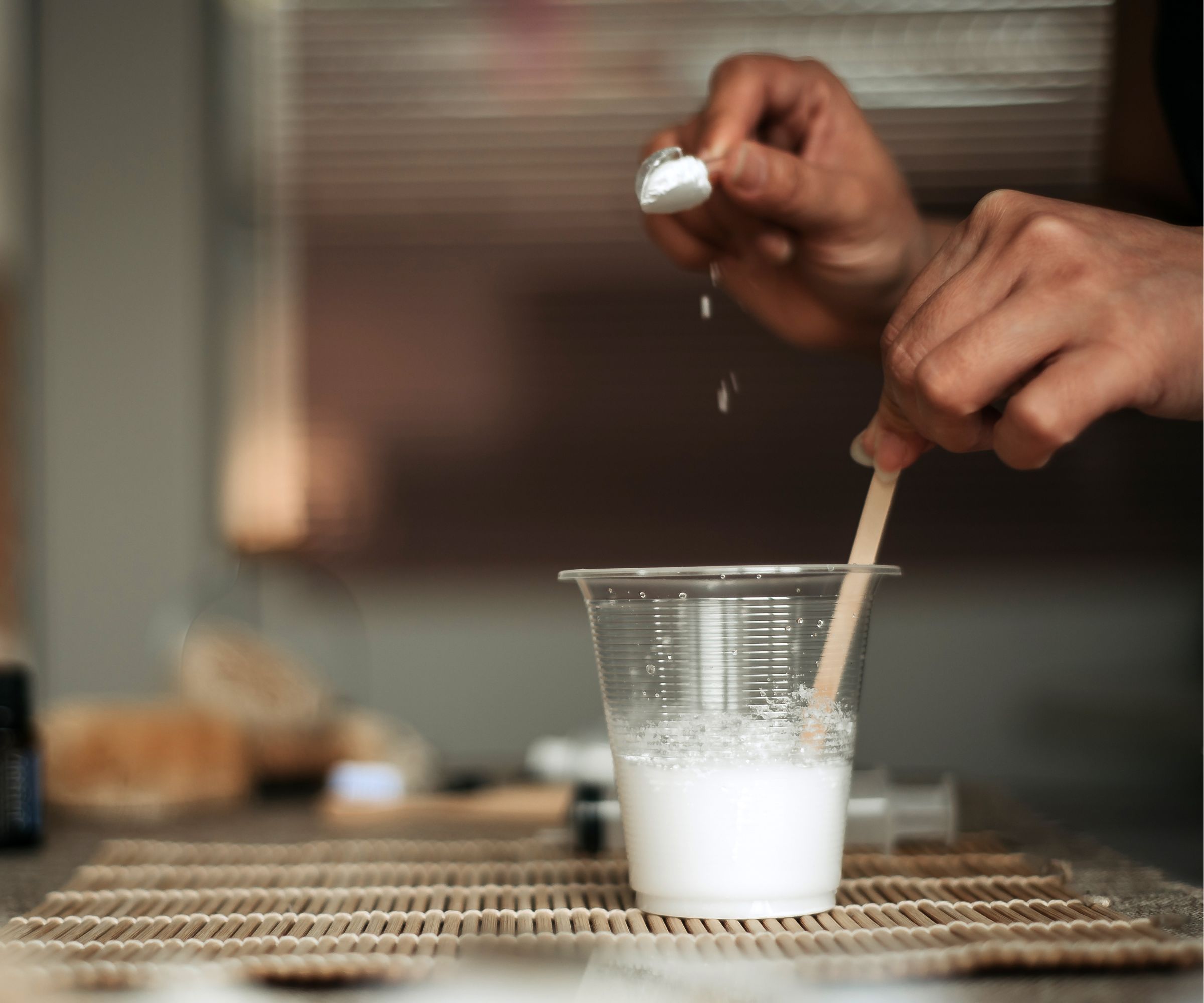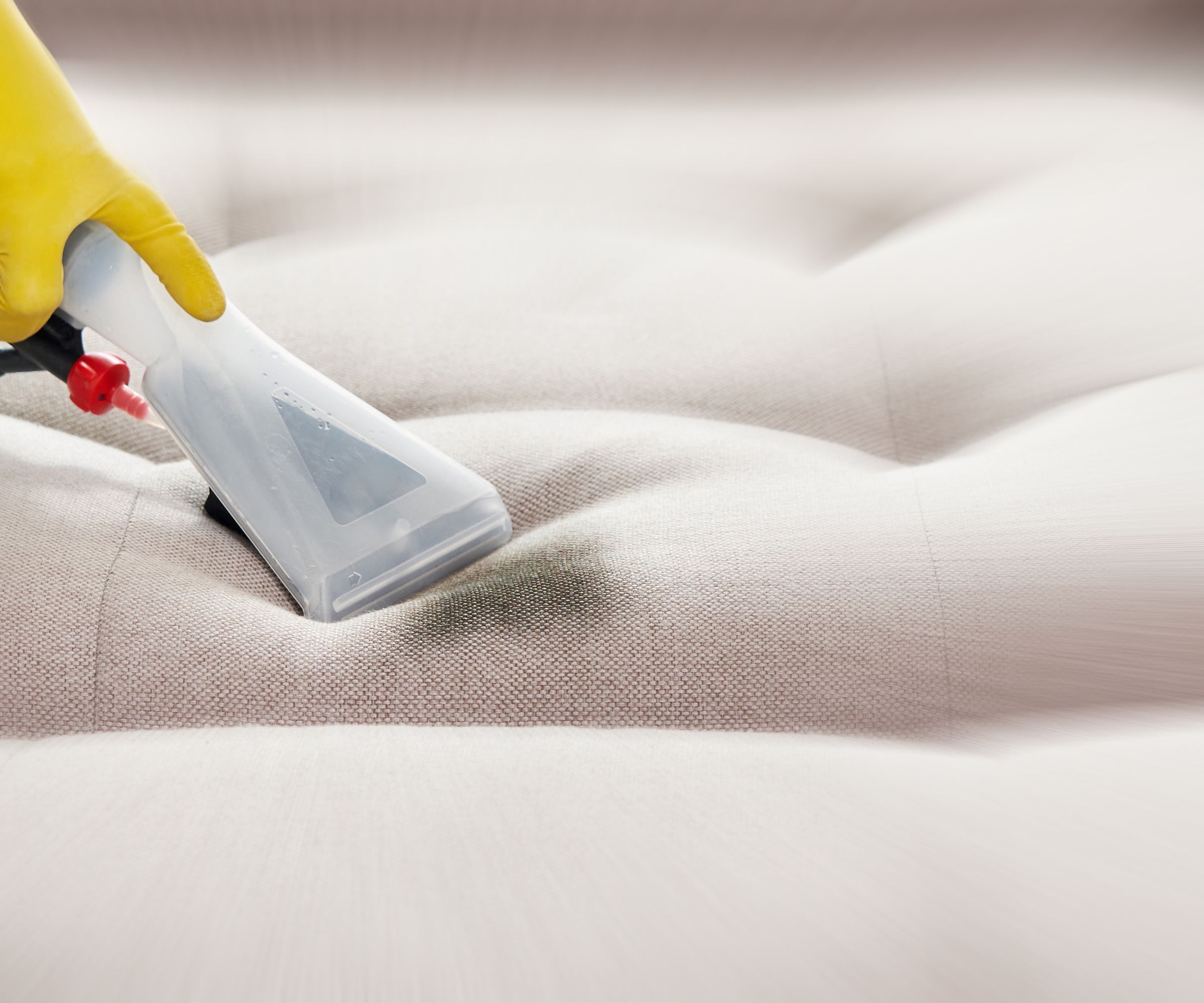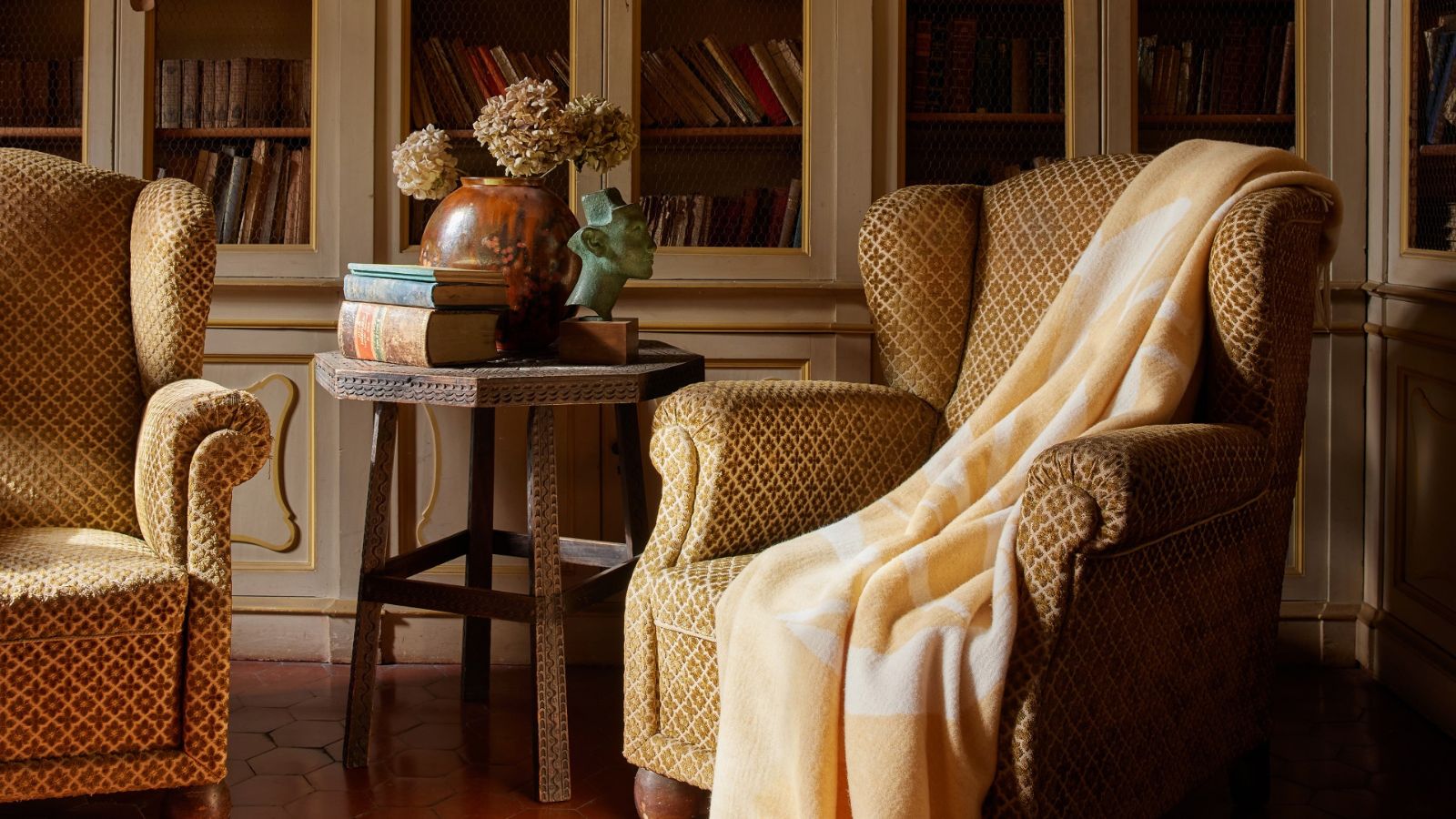Can baking soda kill bed bugs? Pest control pros say absolutely not. Here's what to do instead
Baking soda has great cleaning properties but it will not kill bed bugs and here's why


Can baking soda kill bed bugs? Our pest control pros unanimously agree the answer is no.
If you're hoping to avoid costlier treatments or want to use natural products in the space you sleep, baking soda is not the way forward. Our pest and cleaning experts, who have spent years dealing with these infestations explain why baking soda won't work, what will happen if you do use baking soda, and what will actually work to eliminate these biting bugs instead.
Getting rid of bed bugs properly is essential because they are hardy little critters adept at hiding, reproduce rapidly, and can harm your health with itchy bites and allergic reactions.
Why won't baking soda get rid of bed bugs?

Generally, baking soda won't have an effective impact on bed bugs. They will not ingest it and contrary to popular myths, they can easily walk through it, and won't be 'dehydrated' by it.
Regardless of the cause of bed bugs, Brett Bennett, director of operations at PURCOR Pest Solutions, explains the crux of the issue when eradicating them. He says, 'Baking soda will will not work on the eggs and won't be killing bed bugs on a large enough scale to put a dent in the population. I have not found baking soda to be very effective at killing bed bugs.'
Infestations are compounded by the fact bed bugs reproduce quickly and at volume, making them one of the most challenging infestations to get rid of. Brett says, 'Bed bugs lay tons of eggs and mature relatively quickly, so they are difficult to completely eliminate on your own, especially as they spread to different areas of your home carried on clothes, stuffed animals, and more.’
Cleaning pro Karina Toner, operations manager at Spekless, says, 'Baking soda is not an effective method for killing bed bugs or their eggs. There are a few misconceptions out there suggesting that baking soda can dehydrate bed bugs by absorbing moisture from their bodies or that its abrasive texture might damage their exoskeletons.
'However, there is no scientific evidence to support these claims. Bed bugs are incredibly resilient creatures, and baking soda lacks the chemical properties required to penetrate their exoskeletons or disrupt their life cycles in a meaningful way.'
What will happen if you use baking soda for bed bug infestations

An infestation-free bedroom
Bed bugs may simply avoid the areas with baking soda. 'They will relocate to hide in cracks and crevices or find another path to get to the occupants of the bed,' adds Tim McMahan, the Owner of The Pest RX.
In the course of being a professional cleaner, and operations manager at Spekless, Karina Toner has encountered, identified pests, and dealt with many bed bug infestations. She says, 'When people use baking soda on bed bugs, they usually sprinkle it around infested areas, hoping it will dehydrate or kill them. Unfortunately, this approach is unlikely to work and may even provide a false sense of security.'
Karina explains how bed bugs quickly relocate to areas where baking soda has not been applied, and the eggs, which are often hidden deep in cracks or crevices, will remain unaffected. 'In the end, the infestation may continue to grow unchecked, leading to a bigger problem,' she says.
Dalya Harel of Lice Busters has dealt with stubborn pest infestations for years, including bed bugs. 'If someone tries using baking soda, they’re probably going to be disappointed. I’ve had clients who tried this method before calling me, and all it did was give the bugs more time to multiply. Bed bugs reproduce quickly, and baking soda just won’t keep up with them.
'The result? An even bigger infestation that’s harder to tackle. They can live for several months, and they’re tough little creatures, especially in the right conditions. A single female can lay hundreds of eggs, and with eggs hatching in under two weeks, the population can explode quickly. Bed bugs are hard to get rid of because they hide so well, and they’ve developed resistance to many store-bought treatments.'
Tim McMahan adds that bed bugs can hide in bedrooms for months without feeding, so going for a powerful bed bug killing method such as professional heat treatment, insecticides and steam cleaning will ensure proper eradication.
This might surprise you but bed bugs have a long life with normal feeding, and can sometimes live more than 300 days. Joe Malinowski, VP of pest management at Pest Authority and Mosquito Authority explains, 'A female bed bug can lay 500+ eggs over her lifetime depending on ambient temperature, and as a host for a blood meal, a home infestation can be established in a relatively short time window – in six months or less.'
Joe adds that since bed bugs are small, measuring 3/16 of an inch and 'harbor deep in cracks and cervices without being active during the day, it can be some time before a homeowner may realize they have a problem unless they are getting bit. Some identification signs in addition to bites include blood stains on sheets or mattress.'
How to kill bed bugs properly

'The best way to kill bed bugs if you are at the beginning of an infestation is heat,' Tim says. He recommends using a handheld steamer, such as the Electrolux Portable Handheld Steamer from Amazon before steaming areas where bed bugs hide.
Karina Toner advises using a steamer that reaches at least 200 degrees Fahrenheit and has a nozzle attachment to target hard-to-reach areas.
Since bed bug eggs may be hidden deep within surfaces, multiple steam cleaning sessions might be necessary as well as widespread steaming across all areas of the infested room. 'Slowly move the steamer over areas where bed bugs are suspected to ensure that the heat penetrates deeply,' Karina says.
Consider cracks and crevices in your mattress, steam around the edge, between the mattress and the headboard, and between the mattress and the box springs as well steaming the entire mattress.
Ryan Farley, CEO of LawnStarter adds, 'Bed bugs are attracted to your body heat and the carbon dioxide you breathe out, and sleeping bodies are perfect targets so, they do tend to infest beds. However, you can find them just about anywhere, on clothes, in bedding, especially in cases of more extreme infestations.'
Make sure you replace or wash at high heat your bedding, steam your bed frame, closets, baseboards or anywhere in the room where two materials meet, though bear in mind the steam might damage glue and wood veneers.
Cleaning pro Karina Toner adds to take particular care to steam the warm, dark places in and around your bed. She explains, 'Common bed bug hiding spots include the seams of mattresses, box springs, bed frames, headboards, behind wallpaper, in electrical outlets, and in the crevices of furniture.'
As bed bugs are most active at night when people are asleep, it can make detecting them harder, so consider steaming the area at nighttime. You'll need effective lighting to help you see what you're doing.
Mike Duncan, the National Technical Director, and Entomologist at Truly Nolen of America, also urges you to dust all cracks with diatomaceous earth, available on Amazon, with a nylon paint brush.
'This will create a static charge to the product to adhere to the surrounding material,' he says. 'Missing any cracks or crevices could cause a re-occurrence. Please be aware that 100 percent elimination is the only way to correct the issue with bed bugs.'
When it's time to call the pros

If you have already tried tackling your bed bug infestation and it hasn't worked, worked somewhat but not fully, the bed bugs have returned or you're experiencing ill health or psychological distress from the situation, it's time to call in the professionals without delay.
Check their websites and LinkedIn profiles for information about their experience, ask them questions about their methods, success rates, and check on social media and Google for reviews to help you make an informed decision about which service provider to pick.
Next, learn how to prevent bed bugs to save you from future infestations, and why essential oils are not a good option for killing these pests.
Sign up to the Homes & Gardens newsletter
Design expertise in your inbox – from inspiring decorating ideas and beautiful celebrity homes to practical gardening advice and shopping round-ups.

Punteha was editor of Real Homes before joining Homes and Gardens as Head of Solved. Previously, she wrote and edited lifestyle and consumer pieces for the national press for 16 years, working across print and digital newspapers and magazines. She’s a Sunday Times bestselling ghostwriter, BBC Good Food columnist and founding editor of independent magazine, lacunavoices.com. Punteha loves keeping her home clean, has tested and reviewed the latest robot vacuums, enjoys cooking, DIY, and spending weekends personalizing her newly-built home, tackling everything from plumbing to tiling and weatherproofing.
-
 Ina Garten's storage pantry is an insightful window into all of the best cookware used by the chef – and it's easy to recreate on your kitchen shelves from $48
Ina Garten's storage pantry is an insightful window into all of the best cookware used by the chef – and it's easy to recreate on your kitchen shelves from $48The beautiful dishware in The Barefoot Contessa's Hamptons pantry showcases the tools she uses most often to cook – this is exactly how you replicate it
By Sophie Edwards Published
-
 Extend the lifespan of your appliance with 5 simple but crucial washing machine maintenance tips
Extend the lifespan of your appliance with 5 simple but crucial washing machine maintenance tipsFrom cleaning the filters to keeping the door open, experts reveal the washer tips they swear by
By Andy van Terheyden Published
-
 6 ways to prevent mold and damp in bedrooms – expert solutions to maintain a safe sleep environment
6 ways to prevent mold and damp in bedrooms – expert solutions to maintain a safe sleep environmentDon't sleep on these six tips, experts urge
By Seraphina Di Mizzurati Published
-
 I tried the easy Reverse Advent Calendar decluttering method to clear out my home before Christmas – it's brilliant if overwhelm usually gets in your way
I tried the easy Reverse Advent Calendar decluttering method to clear out my home before Christmas – it's brilliant if overwhelm usually gets in your wayIt left my home feeling lighter with minimal effort
By Ciéra Cree Published
-
 I tried the one-in-one-out method to keep my space clutter-free and it changed my relationship with shopping for good
I tried the one-in-one-out method to keep my space clutter-free and it changed my relationship with shopping for goodI added a few caveats that made the rule work better for me
By Ciéra Cree Published
-
 8 things you should never store in a playroom and where to put them instead
8 things you should never store in a playroom and where to put them insteadRead our top tips on how to keep your playroom organized and fun at the same time
By Sophie Warren-Smith Published
-
 7 fall home maintenance tips experts never skip in their own properties
7 fall home maintenance tips experts never skip in their own propertiesSeven pro steps to maintain your home this fall
By Andy van Terheyden Published
-
 I’m in chronic pain and have used heating pads for 15 years to cope at home in cold weather – the best I've ever used is on sale for Amazon Prime's last day of deals
I’m in chronic pain and have used heating pads for 15 years to cope at home in cold weather – the best I've ever used is on sale for Amazon Prime's last day of dealsI've used more than 30 electric heating pads and they're my go-to for pain relief
By Punteha van Terheyden Published
-
 A professional organizer's best seasonal storage tips for living rooms – they're the key to having easy access, reduced clutter and improved functionality
A professional organizer's best seasonal storage tips for living rooms – they're the key to having easy access, reduced clutter and improved functionalityWelcome in the new season with stylish storage tips for fall
By Ottilie Blackhall Published
-
 How to elevate your teen's former bedroom into a beautiful home office
How to elevate your teen's former bedroom into a beautiful home officeTips and advice from an interior designer and a professional organizer on how to transition your teen's bedroom into a home office
By Ashley Chalmers Published